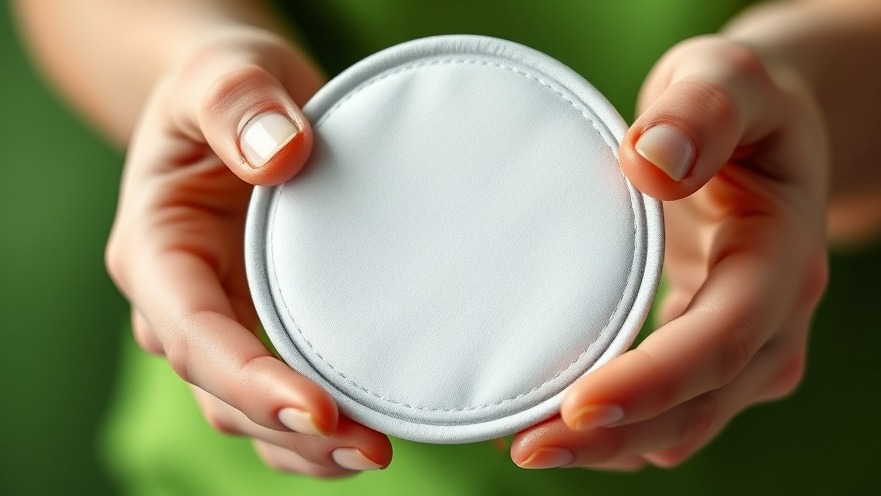
Revolutionizing Infant Care with Smart Technology
The traditional role of lactation pads has now been elevated by cutting-edge technological advancements. Researchers at the University of Southern California (USC) have developed a smart lactation pad capable of monitoring the safety of breast milk in real time. This innovative device is not just about convenience; it addresses a crucial health concern for both mothers and their infants.
Ensuring Safe Levels of Acetaminophen
One of the standout features of this smart pad is its ability to continuously assess breast milk for acetaminophen, a common medication prescribed after childbirth. Its real-time monitoring helps parents stay informed about the drug levels passed through breast milk, which can be critical since excessive acetaminophen intake can lead to serious health risks, including acute liver failure in children. This device could represent a significant leap forward in safeguarding infant health.
How the Smart Lactation Pad Works
The pad features embedded electrodes and microchannels that analyze milk samples as they are secreted throughout the day, without requiring additional effort from the parent. This seamless integration into daily routines allows for ongoing health monitoring that can yield invaluable data for both parents and healthcare providers.
A Leap Towards Actionable Insights for Parents
According to Maral Mousavi, an assistant professor of biomedical engineering and the study's first author, this innovation empowers lactating individuals with actionable health insights. While there are existing services for testing breast milk, they are often inefficient, relying on mail-in kits that can be costly and time-consuming. This device puts timely information directly in the hands of parents.
Broader Implications for Maternal and Infant Health
The introduction of such a device not only benefits individual families but can also lead to broader research implications. Understanding how drugs transfer into breast milk will help guide recommendations and regulations around medication use in breastfeeding populations. It can ultimately contribute to safer prescribing practices and inform healthcare policies.
Addressing An Unmet Need in Maternal Care
This development arose from the personal experience of a graduate student within the research team who was prescribed acetaminophen post-delivery. The lack of suitable technologies to ensure breast milk’s safety became evident, highlighting a critical gap that this smart lactation pad aims to fill.
The Future of Lactation Technology
As health professionals, it is vital to keep an eye on innovations that could impact patient care. Emerging technologies like the smart lactation pad exemplify how health monitoring can be integrated into everyday life. These advancements not only enhance maternal and infant health but also spark discussion on how technology can foster wellness and proactive health solutions.
Final Thoughts: Why You Should Care
Healthcare practitioners should educate themselves about advancements like the smart lactation pad to better inform parents and support healthy practices. As technology continues to evolve, integrating these innovations into patient education can enhance care and safety for both mothers and their newborns.
In an era where personalized healthcare becomes increasingly important, staying informed about these developments is essential for practitioners who want to maintain a proactive approach to patient wellness.
Call to Action: Engage with your patients by exploring how the latest in lactation technology can enhance their experiences and health outcomes. By staying informed and adapting to innovative solutions, you can better support postpartum care.
 Add Row
Add Row  Add
Add 






Write A Comment